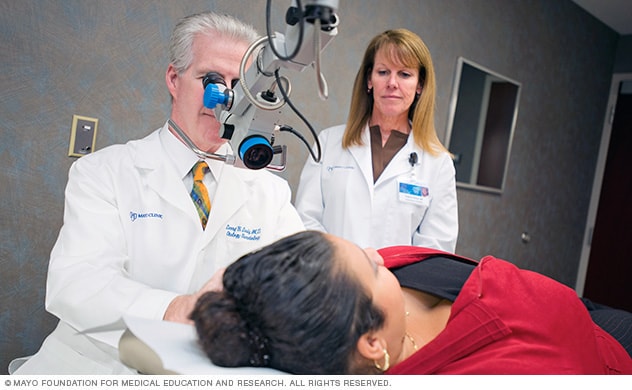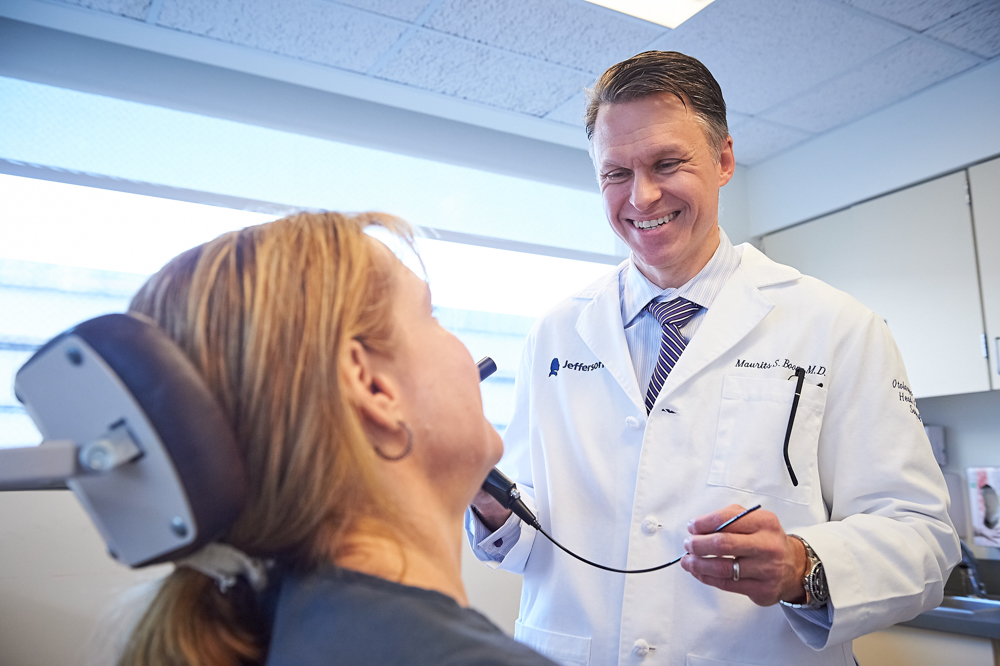Are You Losing Your Hearing? Time to Consult a Hearing Expert
Wiki Article
Checking out the Field of Otolaryngology: What to Expect When You Seek Advice From an ENT
Otolaryngology, commonly referred to as ENT, incorporates the diagnosis and therapy of throat, ear, and nose problems. For those experiencing relevant problems, speaking with an ENT professional can provide clearness and alleviation. Recognizing what to expect throughout such appointments is necessary for efficient interaction and care. This review will describe vital aspects of the ENT experience, consisting of common reasons for gos to and the procedures associated with diagnosis and therapy.
Recognizing Otolaryngology: A Summary
Otolaryngology, often described as ENT (Throat, ear, and nose) medication, is a specialized branch of medication that focuses on the medical diagnosis and treatment of conditions impacting these critical locations of the body. This area includes a wide range of problems, consisting of those associated to hearing, balance, respiratory system function, and speech. Otolaryngologists are educated to manage both surgical and clinical treatments, making use of innovative techniques and innovations. Their proficiency expands beyond traditional ailments, attending to problems such as allergic reactions, sinus infections, and hearing loss. In addition, they play an essential duty in the monitoring of head and neck cancers, offering complete care tailored to private client requirements. Overall, otolaryngology stays crucial for maintaining health and wellness and lifestyle in affected people.Usual Factors to See an ENT Specialist
Lots of individuals seek the experience of an ENT expert for a variety of reasons, reflecting the diverse nature of conditions that impact the nose, throat, and ear. Typical problems consist of persistent sinusitis, which typically leads to persistent nasal blockage and facial discomfort. Allergic reactions and their connected signs and symptoms, such as sneezing and itching, additionally motivate sees to these experts (Otolaryngologist). Hearing loss, whether unexpected or steady, is an additional significant reason for appointment. Furthermore, people may seek evaluation for throat disorders, consisting of persistent hoarseness or swallowing difficulties. Sleep apnea, defined by disturbed breathing during sleep, is frequently attended to by ENT professionals. Each of these problems highlights the importance of specialized care in handling intricate ENT-related health and wellness concerns
Preparing for Your ENT Visit
When planning for an ENT visit, it is necessary to gather appropriate info and consider any type of particular concerns. Clients need to compile a comprehensive case history, consisting of previous ear, nose, or throat problems, surgical procedures, and current medications. Documenting signs-- such as severity, regularity, and period-- can offer valuable understandings for the ENT specialist. Furthermore, people need to prepare a listing of questions they wish to ask, ensuring that all concerns are addressed during the browse through. Bringing along any appropriate clinical documents or test results can further help the ENT in understanding the individual's condition. Ultimately, individuals must confirm their appointment details, including time, date, and location, to decrease any type of last-minute confusion. Correct prep work can improve the performance of the consultation and lead to better end results.What to Expect During the Consultation
As the assessment begins, the client can anticipate to take part in an extensive conversation with the ENT specialist regarding their signs and case history. The expert will certainly ask about the period, frequency, and intensity of signs and symptoms such as hearing loss, nasal congestion, or sore throat. In addition, the person's previous medical conditions, drugs, and any relevant family history will certainly be evaluated, helping the specialist in forming a total understanding of the person's health. The ENT may likewise ask about lifestyle aspects, such as exposure to irritants or allergens. This open discussion develops a foundation for the examination, Hearing making certain that the person's worries are addressed and establishing the stage for any type of essential examinations or referrals for treatment.
Diagnostic Tests and Treatments in Otolaryngology
A series of diagnostic tests and treatments are important in otolaryngology to accurately assess and identify conditions influencing the nose, ear, and throat. Usual tests include audiometry, which determines hearing feature, and tympanometry, evaluating center ear stress. Nasal endoscopy enables visualization of the nasal passages and sinuses, while laryngoscopy analyzes the throat and singing cords. Imaging methods, such as CT scans and MRIs, supply in-depth sights of head and neck frameworks. Allergy testing might additionally be conducted to identify triggers for sinus or breathing issues. These analysis devices allow ENT specialists to develop a thorough understanding of people' problems, ensuring tailored and effective monitoring strategies. Proper medical diagnosis is necessary for effective treatment results in otolaryngology.Treatment Alternatives Supplied by ENT Specialists
ENT specialists offer a range of treatment alternatives customized to resolve specific problems impacting the nose, throat, and ear. These therapies range from conventional methods, such as medicine and lifestyle modifications, to more intrusive procedures. For example, allergies might be managed with antihistamines or immunotherapy, while chronic sinus problems may require nasal corticosteroids or sinus surgical procedure. For hearing loss, ENT specialists often recommend listening devices or surgical treatments like cochlear implants. In situations of throat conditions, choices can consist of speech treatment or procedures to eliminate obstructions. Additionally, they might offer support for handling rest apnea, including making use of CPAP devices or medical treatments. In general, the objective is to enhance clients' lifestyle through customized treatment and effective therapy strategies.When to Seek Follow-Up Treatment With an ENT
When to seek follow-up treatment with an ENT specialist is important for managing continuous signs and symptoms or complications related to ear, throat, and nose conditions, identifying. People should consider scheduling a follow-up consultation if symptoms linger despite initial treatment, such as chronic ear discomfort, nasal congestion, or throat discomfort. Adjustments in hearing, equilibrium problems, or unusual nasal discharge may likewise require more evaluation. Furthermore, if a client experiences side impacts from recommended drugs or has undertaken a procedure, follow-up treatment is essential to keep track of healing and attend to any kind of problems. Prompt consultations can assure efficient monitoring of problems, avoid prospective difficulties, and supply satisfaction concerning one's health and wellness. Seeking follow-up care promotes proactive wellness management in otolaryngology.Regularly Asked Inquiries

What Qualifications Should I Search for in an ENT Specialist?
When looking for an ENT expert, one must look for board qualification, relevant experience, and solid client testimonials. In addition, efficient interaction abilities and a caring approach can greatly improve the total therapy experience.Just how Do I Choose the Right ENT for My Needs?
Picking the ideal ENT expert entails reviewing their credentials, experience, and patient testimonials (ENT Clinic). It is essential to contemplate their communication style and method to therapy, ensuring they line up with the person's details wellness needs and choicesExist Any Kind Of Dangers Connected With ENT Procedures?
The risks connected with ENT treatments may consist of infection, blood loss, anesthetic complications, and potential damages to bordering structures. Patients must go over these risks with their doctor to recognize individual concerns and assurance educated decisions.How Can I Handle Stress And Anxiety Before My ENT Appointment?
To manage anxiety before a visit, people can practice deep breathing exercises, visualize favorable outcomes, prepare inquiries ahead of time, and look for support from close friends or household, cultivating a feeling of peace of mind and peace.What Should I Do if I Experience Side Results From Treatment?
If side results from therapy happen, the person should quickly report them to their doctor. Changes to treatment or additional interventions may be required to assure safety and efficiency in handling their problem - Sinus. As the appointment starts, the individual can anticipate to involve in an extensive conversation with the ENT specialist about their signs and medical history. These diagnostic devices make it possible for ENT experts to establish a complete understanding of patients' problems, making certain customized and effective administration strategies. ENT specialists use a range of therapy alternatives tailored to deal with certain conditions influencing the ear, nose, and throat. When looking for an ENT professional, one ought to look for board qualification, appropriate experience, and solid patient reviews. Picking the appropriate ENT specialist entails reviewing their qualifications, experience, and person reviewsReport this wiki page